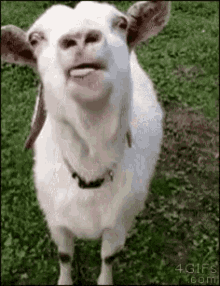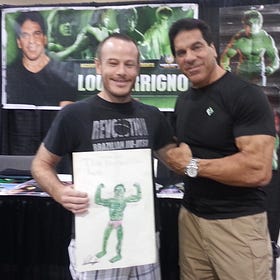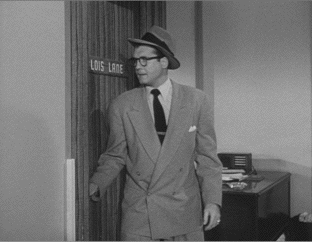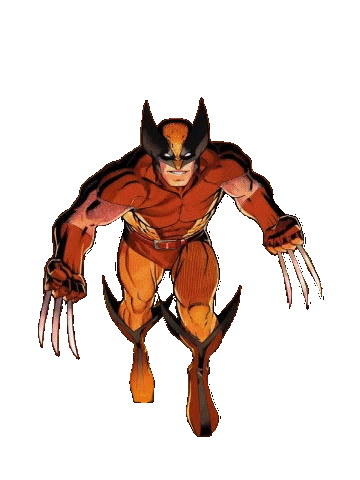Having real-life heroes can be dangerous. People turn out to have all sorts of flaws you don’t notice at first, and sometimes this causes you to reconsider whether you should still look up to them.
I’ve gravitated away from having human heroes myself over the years. Sure, I mention the genius of Einstein a lot, or how Weird Al helped me to laugh through some tough times, or I’ll talk about how nakedly curious Richard Feynman was. However, I’m not here to worship the ground these folks walk on. I’m here to celebrate the ideas they had and the contributions they made to the world.
I’ve ultimately concluded that it’s okay to model your behavior after that of others whose accomplishments you admire or respect, but it’s not okay to simply surrender to admiring the person. The good news is that you don’t have to like everything about a person to appreciate one or two accomplishments or traits.
Now, with my morning rant out of the way (and, truly, some good advice I hope you’ll take), let me tell you about the non-human heroes I’ve had during my lifetime. I think they reveal an awful lot about who I was at different times in my life.
One of my earliest heroes was The Incredible Hulk. Every week, Lou Ferrigno would be on TV, smashing everything as Bill Bixby’s alter ego, and probably saving the day. I did a fantastic Hulk drawing when I was fairly little, and I saved that drawing for years, eventually getting Lou Ferrigno to sign it:
Meeting The Incredible Hulk
The Incredible Hulk was the highlight of my week. It ran from 1977 until 1982, so the Hulk must have been the most important thing in the world, at least until He-Man, GI Joe, and The Transformers took over during the following years. This show was crazy interesting!
In addition to the Hulk, there was Superman, who was “able to leap over tall buildings in a single bound”, according to The Adventures of Superman, which aired during the 1950s. I watched every Superman rerun I could get my eyes on, often while visiting my grandparents in another city.
During my childhood, Superman morphed into something much more powerful, and we got to see that version of Superman on the silver screen, played by Christopher Reeve. Every version of Superman thereafter showcased his vastly superior power.
Power was the attribute that intrigued me the most, I think. Strength was another way to put it, and I certainly wanted to be strong like the Hulk and Superman.
Over the ensuing years, as I went from a fairly rosy elementary school to a dystopian hellscape that was middle school, my heroes needed to change. No longer did the idealized, ultra-powerful heroes do the job. Instead, I needed anti-heroes, folks who endured the same sorts of social rejection I felt.
Of course, unbeknownst to me at the time, most other middle school kids felt the same way. I really thought it was only me! But of course, other kids were into these more grim heroes like the X-men, especially Wolverine.
Now, Wolverine was very powerful too, but he was no Superman. It was possible for Wolverine to lose a fight, although he would always recover thanks to his mutant healing factor. It wasn’t just his lack of almost-unfair advantages that made his character interesting, though—it was the fact that he walked alone, outside of society for much of the time, and Logan (Wolverine’s actual first name) was ostracized from an early age, never quite fitting in.
Batman wasn’t exactly like Wolverine, but he also had a very dark side. Like with Superman, the Batman TV show from the 60s was incredibly campy, just kind of cheese on a screen. It wasn’t intended to portray a complex character struggling to cope with the death of his parents, but that’s what we got in the comic books during the 1980s, especially as Frank Miller and Jim Aparo showed the Caped Crusader contemplating vengeful murder, watching close friends die, and ultimately showing us a much more humanized hero.
Wolverine, Batman, and other characters I was drawn to generally all suffered through things, and they generally all had character flaws. Nobody was perfect, and that was delightfully complex.
That was the real world. I mean, minus the superpowers.
Over the three decades that have passed since the early 90s, I’ve followed a lot of thinkers. Punk rock music was a huge part of my existence for years, but I quickly learned not to worship at the altar of any punk icons. Instead, I liked to pick apart their lyrics and instead admire the moment of inspiration, or the insight.
Meeting some punk icons in person helped to demystify any lingering potential hero-worship.
In Brazilian Jiu Jitsu, I’ve had the opportunity to meet some of the folks at the very top of the sport. While you might meet one or two professional baseball or basketball players during your lifetime, jiu jitsu during the late 90s and early 2000s was very different. Hardly anyone in the US knew who these trailblazers were.
I’ve managed to avoid idolizing any of these folks, in spite of falling in love with the way they do jiu jitsu or the music they create.
Recognizing that it was important to separate the art from the artist was an incredibly liberating thing for me, allowing me to study something a person created, without having analyzed their underlying character. Even still, it’s hard to continue to study someone’s art when you discover horrible things about them.
So, my heroes today are ideas. If the idea is good, I want to hear and discuss it. If someone comes up with a lot of good ideas, I’ll probably want to pay attention to that person, but I also need to remember that it’s the thing, not the person that I want to put on a pedestal.
What about you—do you have human heroes? What about heroes from fiction or lore?








All of us are flawed, so I agree that following a person is not a good idea. As all of us are a sample size of 1, we see the world based on our experience. Our experience cannot be universally applied (different times, locations, and norms). Learning from other people's experiences is a good idea, but not following anyone blindly. I like the Royal Society's motto, 'Nullius in verba,' which means 'take nobody's word for it.' It is impossible to verify everything, but I verify the idea from multiple sources if it is something important to me. This is the same thing I tell my son: do not follow me or my experience blindly; I am a sample size of 1 with only limited exposure to the world. If it is something important to you, verify.
I still admire superheroes- I write stories about them, after all. But I dislike the pessimistic and shady ones and prefer ones that are more optimistic and comically flawed, which is how mine have come to be as well.
Of my real-life living heroes, Mel Brooks is tops. His whole career is a guide to participating in the best of popular culture in the 20th and 21st centuries- while, at the same time, being very uniquely and recognizably yourself. One does not become an Oscar, Emmy, Grammy and Tony winner doing things other people's ways. He cut his teeth in the cut-throat world of TV comedy writing in the 1950s, and all the television shows, films, and comic fictional characters are based on that same ethos. It wouldn't be much to say that his influence on my view of making comedy on and off screen owes much to him.